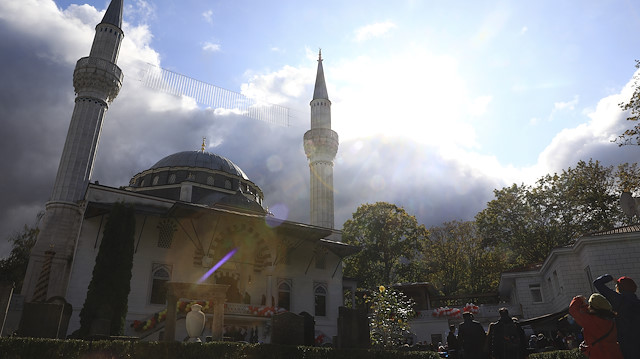

'Open Mosque Day' in Germany
Germany's Muslim community 'not feeling safe enough' amid growing far-right hate crimes, says integration minister
Germany’s integration minister on Tuesday expressed concern over Islamophobia, warning that it poses a "real danger" to social cohesion.
Presenting the annual government report on the state of integration in the capital Berlin, Annette Widmann-Mauz said: "Right-wing extremism, anti-Semitism, and hostility towards Muslims are a very real danger that we have to combat in a consequent and sustainable manner."
She added: "I'm worried about any extremist development where people are being combatted, insulted and threatened because of their origin, and because of their faith and because they look different. And that is why it is urgent that we also recognize clearly that this is a real danger. A threat to this society, to its cohesion."
Widmann-Mauz said that a free and secure society has "to guarantee all people that they can be different without fear."
Germany has witnessed growing anti-Muslim hate crimes in recent years sparked by hate propaganda by far-right parties.
In 2018 more than 100 mosques and religious institutions were attacked by far-right extremists.
Police recorded 813 hate crimes against Muslims last year, including verbal insults, threatening letters, and physical attacks which led to at least 54 Muslims being wounded.
Germany's Muslim community is "not feeling safe enough" amid the country's growing Islamophobia, a German Muslim leader recently told Anadolu Agency in Berlin.
"This year we had more than 80 attacks on mosque communities in Germany. The security situation is very tense. Muslims are not feeling safe enough," said Burhan Kesici, chairman of the Berlin-based Islam Council.
"Security authorities need to definitely work closer with the [Muslim] communities, develop concepts, and provide advice. Otherwise, Muslims lose confidence in the security agencies," he added.
A country of over 81 million people, Germany is home to the second-largest Muslim population in Western Europe after France.
Among the country’s nearly 4.7 million Muslims, at least 3 million are of Turkish origin.
#anti-Muslim hatred
#Germany
#Islamophobia
#integration
#Muslims

